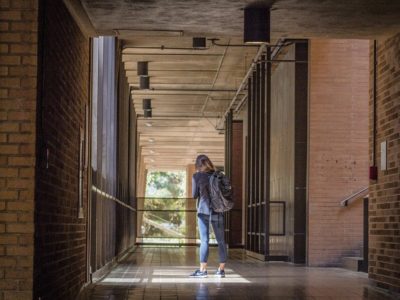I don’t mean to freak you out, but midterms seem just beyond the horizon. Luckily, I took plenty a midterm myself to know more than a few tips to help study. Now, I know what you might think. A study method that works for one person might not work for another. I agree. At the end of the day, there can’t exist one perfect, fool-proof way to study that assures your success in exams. This list only features tips that really worked for me, and which I hope can really help you as well.
Let’s get started with the academic stuff then, shall we?
1. Schedule

This one I do actually believe works universally. You can’t jump into studying for midterms without a clue about how to start. Scheduling provides your perfect beginning. Anything, from managing your classes to studying for midterms, comes down to this; organization means everything. I know that a lot of students like to postpone everything to the last second, and then cram in the last two days. Certainly one method, I won’t deny that. However, if you want to minimize your stress levels, then it would help better if you knew what subject you wanted to study and when. Leave Mondays for reading, Tuesday for jotting down notes, Wednesday for memorization, etc. Stick to your schedule. Plenty of people will stumble through it, and if that happens, don’t worry about it. Just try to stay as organized as possible. Keep a journal, mark down your study days and you will see the difference on exam day.
2. Annotate

I truly cannot stress this one enough. I don’t even like annotating, but even I can’t deny how much it helps keep my thoughts and ideas focused. Especially as an English, Philosophy or Psychology major. A lot of exams might offer open-book, which means that you will bring your textbook in with you for your midterm, and if that happens, you will need to know which sections matter more than others. Not to mention, it helps while you study because it helps you narrow down the passages to study and memorize.
“To specifically prepare for midterms and other exams, students should have an efficient system for completing their reading assignments during the term. While last-minute cramming might help someone get a good grade on an exam, it won’t help them retain what they have learned in the long term. In many cases, students don’t know what to take note of when they read, so they either take way too many or way too few notes. For that reason, I give students a note-taking model. For any assigned article, chapter, film, or text, students should not write more than a page of notes. Perhaps they should limit their notes to 150 words for each text. Those notes should include 1) a short list of no more than four vocabulary terms, 2) the three most important claims that the author makes, 3) two parts that the author could explain more or the student finds disagreeable, 4) one question for the author, and 5) a golden nugget quote that identifies the most enlightening sentence or two from the author. With such notes, students can have effective discussions in class without searching through tons of notes. It will also be easy to add to the notes based on in-class lectures. Students will also have quick reference notes to use while studying or writing term papers,” California State University, Los Angeles Associate Professor of English Christopher Harris said.
Annotating also means taking notes on the most important part of a chapter. Annotating helps focus on certain aspects that most likely come up in the exam. You could easily highlight everything, but instead, might I recommend paying close attention in class and annotating along with the professor’s emphasized notes? Not every word in that textbook will come up in the exam and you know that. So, annotate the main ideas and focus on those.
3. Keep Tabs

Make it colorful. Grab any number of pastel tabs from your student store, decorative ones or even just the regular ones and start leaving tabs on those books of yours. If your textbook comes in electronic version, take advantage of the electronic tabs and colors! Much like annotating, keeping tabs helps focus your attention on the more important pages. Even more, with so many subjects to study at once, color-coordinating those tabs helps you differentiate between which notes belong to which subject. The majority of my classes classified as English, so I used different colors for different eras. Purple for Medieval, red for Contemporary, yellow for Queer Theory, etc. It helped keep my studies bright and colorful and it helped me focus. I highly recommend using tabs.
4. Play Association Games

Okay, I know a lot of people struggle with memorization, so I’ll tell you about a trick that helped me. A lot of classes, no matter your major, contain some level of memorization. Whether it comes down to a lot of it or a little, the method to memorize remains more or less the same. Some people can memorize just by looking at the page. We won’t talk to those people (again, I kid, don’t actually shun people). I, however, recommend the association game.
“Everyone learns differently… pay attention in the way you can to class, take notes, do the reading and engage, think of the midterms as a game–video or exercise or chess, enjoy it, show who you are. Flex your mind, that’s why you are in a university,” Loyola Marymount University Professor of English Theresia de Vroom said.
Simply put; you associate whatever you need to memorize with another word or song in your head that helps you memorize it better. For example; if I need to learn about Henry VIII (i.e. Henry the Eighth for any non-history nerds), and I need to know exactly how many wives he married, I would think of the British musical, Six the Musical; a rock musical about Henry’s six wives, from the perspective of his six wives. It seems silly or goofy, but it helps me remember details a lot more easily. Maybe you can turn your studies into a different kind of game. Maybe you need to turn historical events into fairytales, maybe you turn math equations into riddles. Whatever helps you best, use it.
5. Find Your Quiet Place

Everyone owns one. A space, however big or small, that you feel you can focus in. For some, that might consist of the library. For some, a café. My roommates absolutely could not work in the apartment. They needed noise around them to focus, which I completely understood. Some people function better in chaos. Even some of the libraries echoed plenty of noise. Think of it as keyboard ASMR, if that exists. (I don’t know anything about ASMR, but that sounds like a thing that would exist online.)
“As learning is a process, being ready for a midterm starts early in the semester. One key part of the process: finding a place that feels like your place when you have reading to do. It’s probably quiet there and will allow you to listen to what you’re reading and to hear your own thoughts,” California State University, Long Beach Professor of English Logan Esdale said.
For that reason, I always personally couldn’t study anywhere but my apartment. You might consider yourself someone like that, too. Not someone who simply needs to study in the quiet, but in a quiet, familiar place. Whatever your study space consists of, I highly recommend finding it early on in the semester. That way you know exactly where to head when the exams come up.



















